Xtend is a statically typed Java-like language that aims to provide a more concise syntax than Java with features like type inference, extension methods, and lambda expressions. Xtend code is translated to Java bytecode and can interoperate with Java code by reusing existing Java libraries. Xtend supports many modern programming concepts like optional semicolons, type inference, and lambda expressions to provide a more concise programming experience compared to Java.
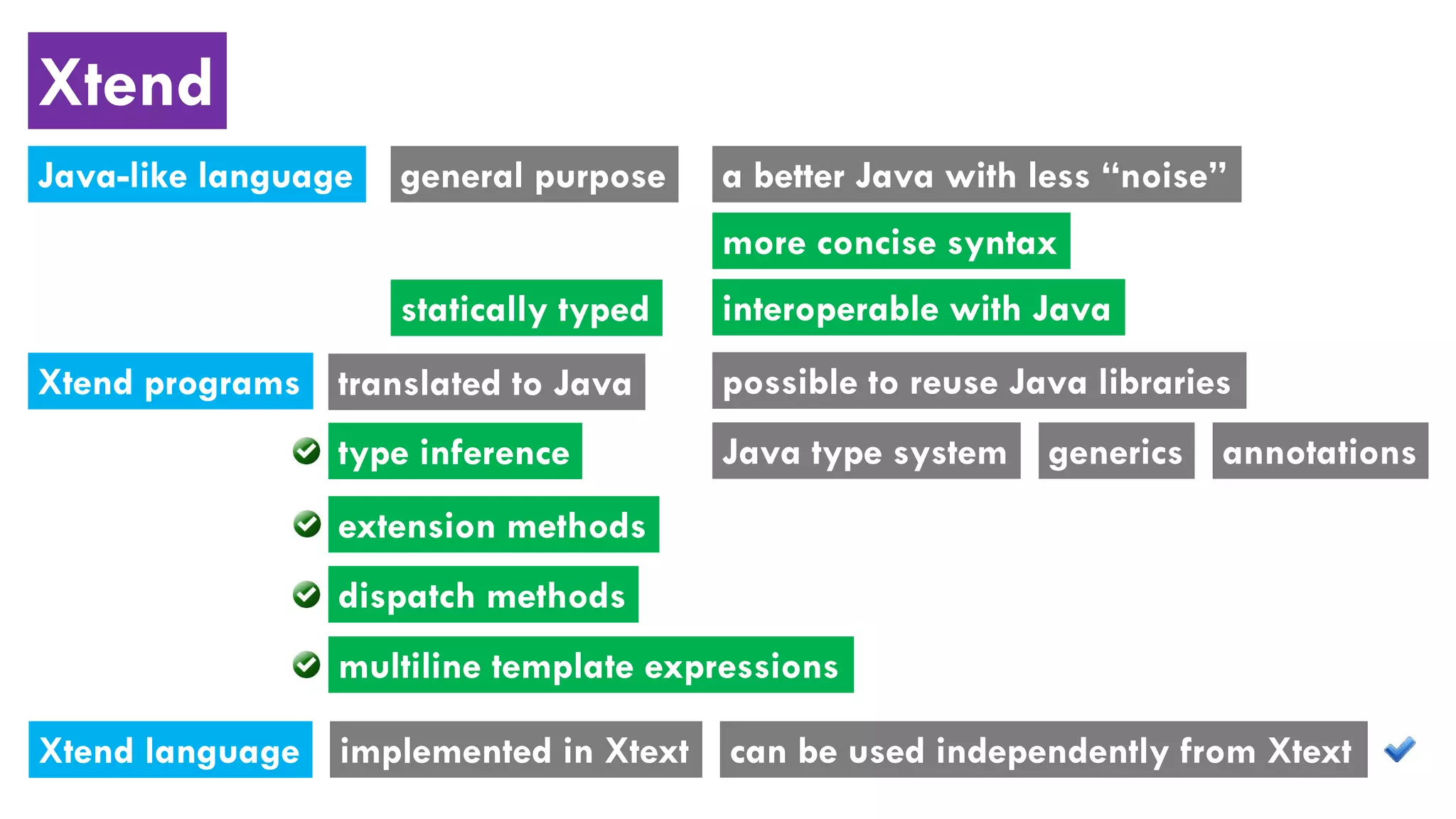
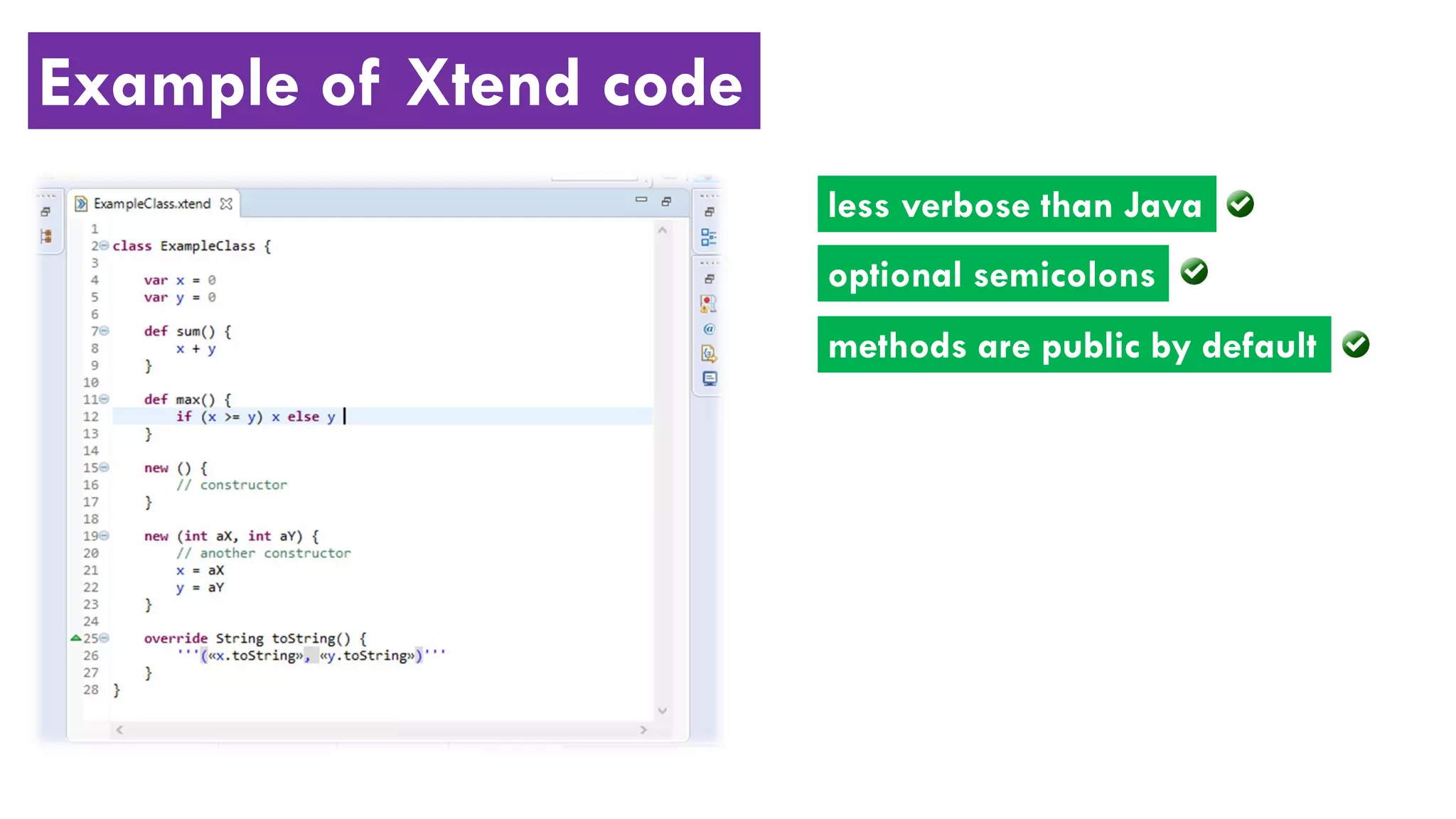
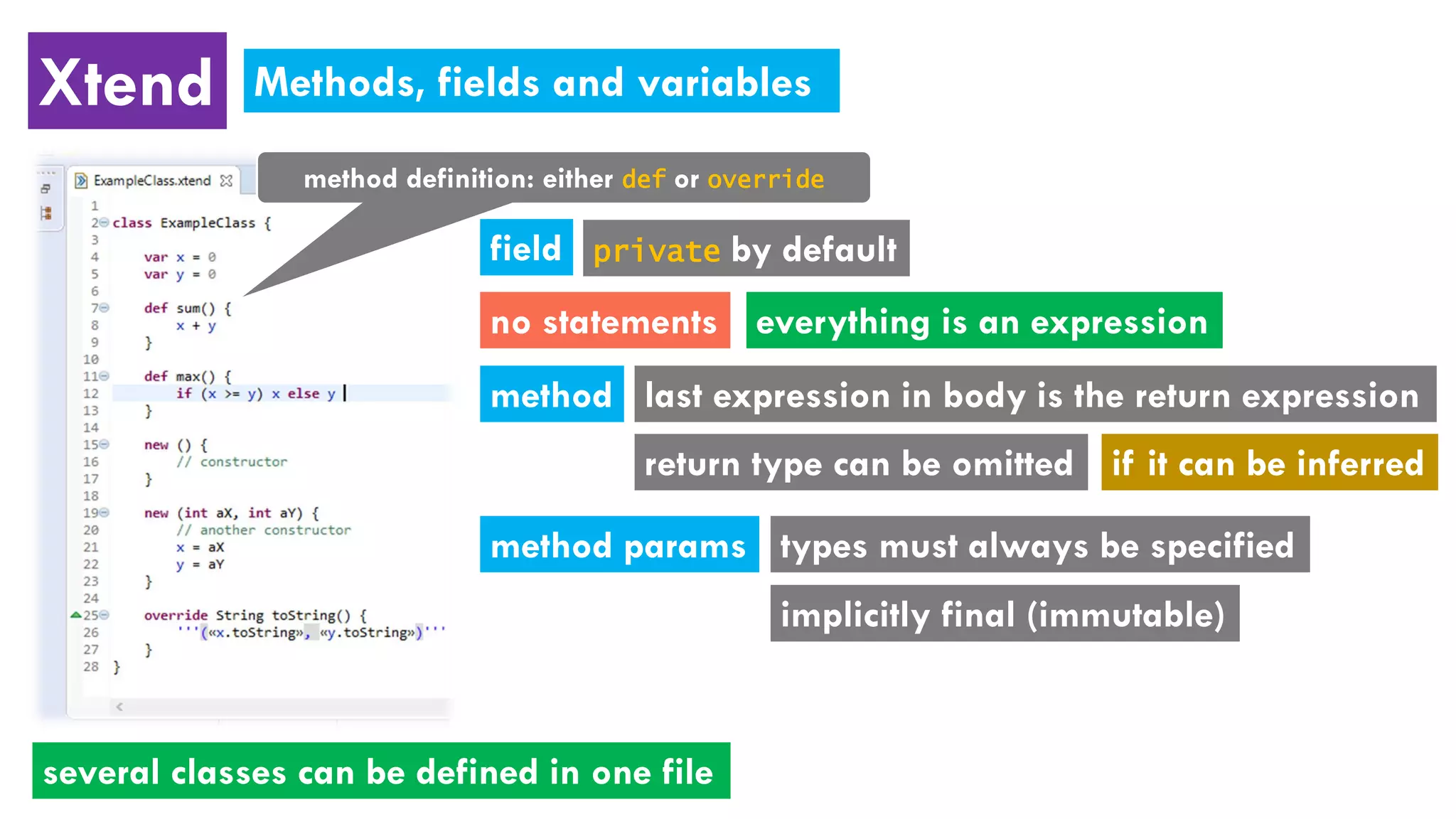
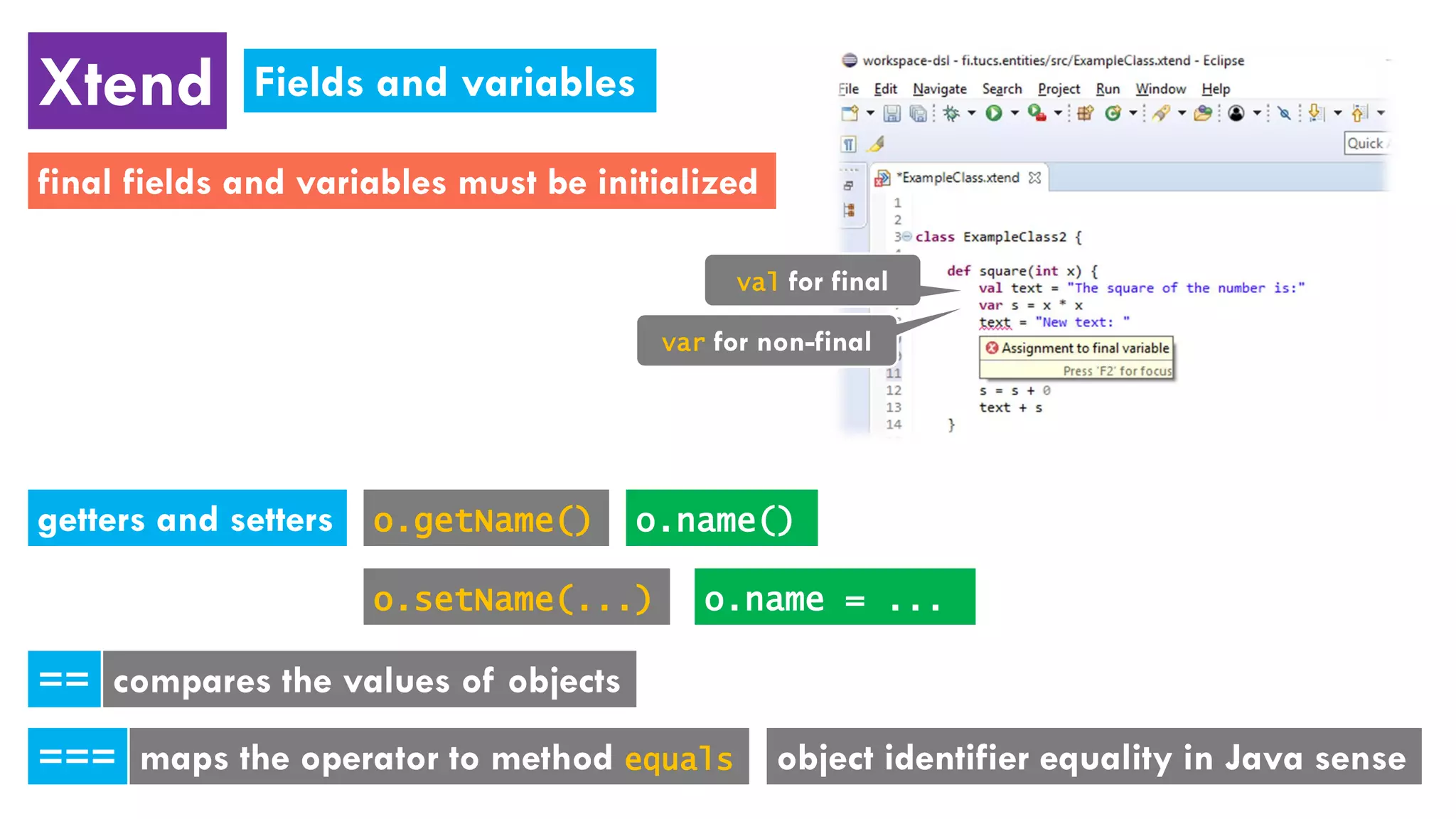
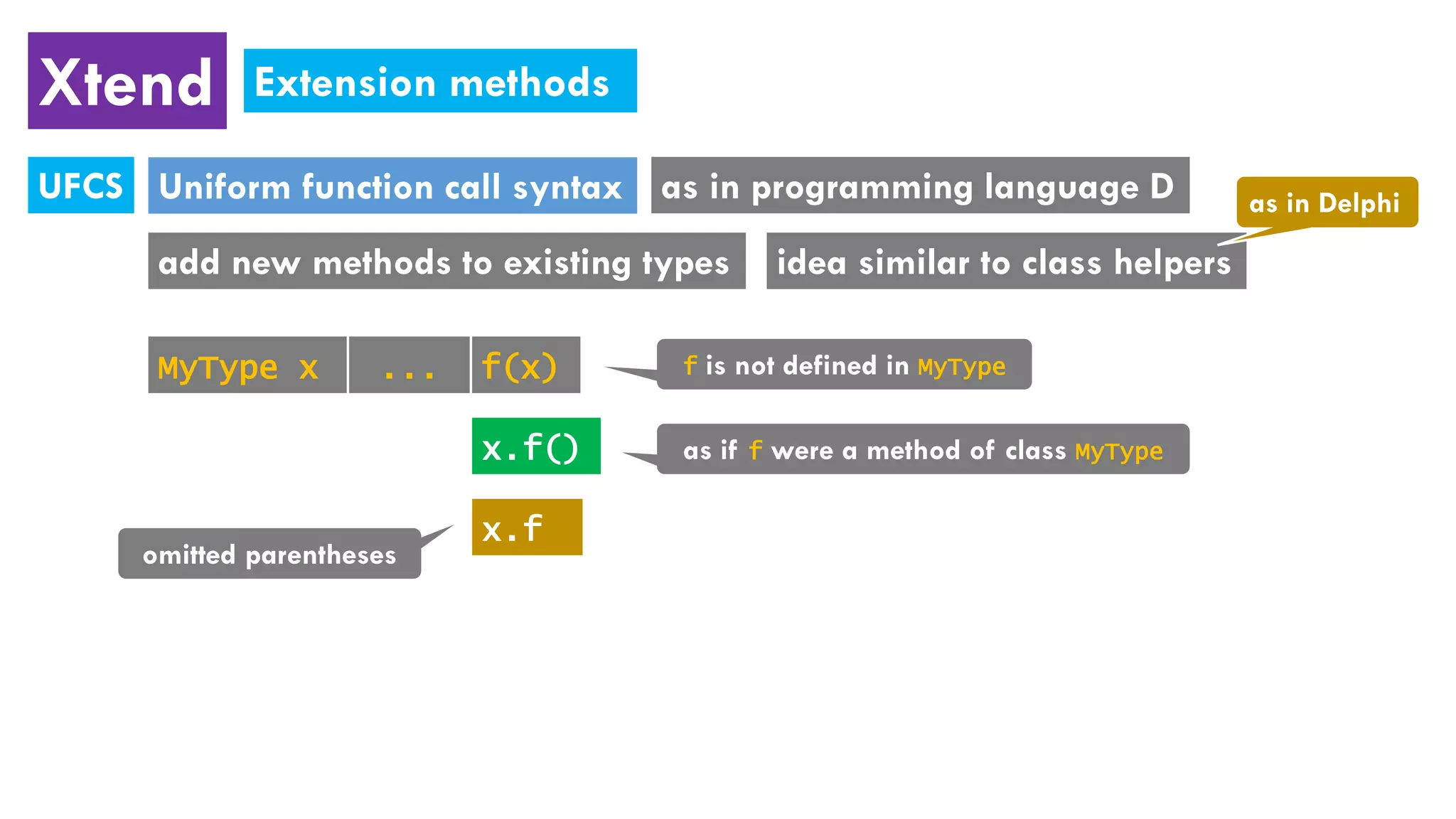
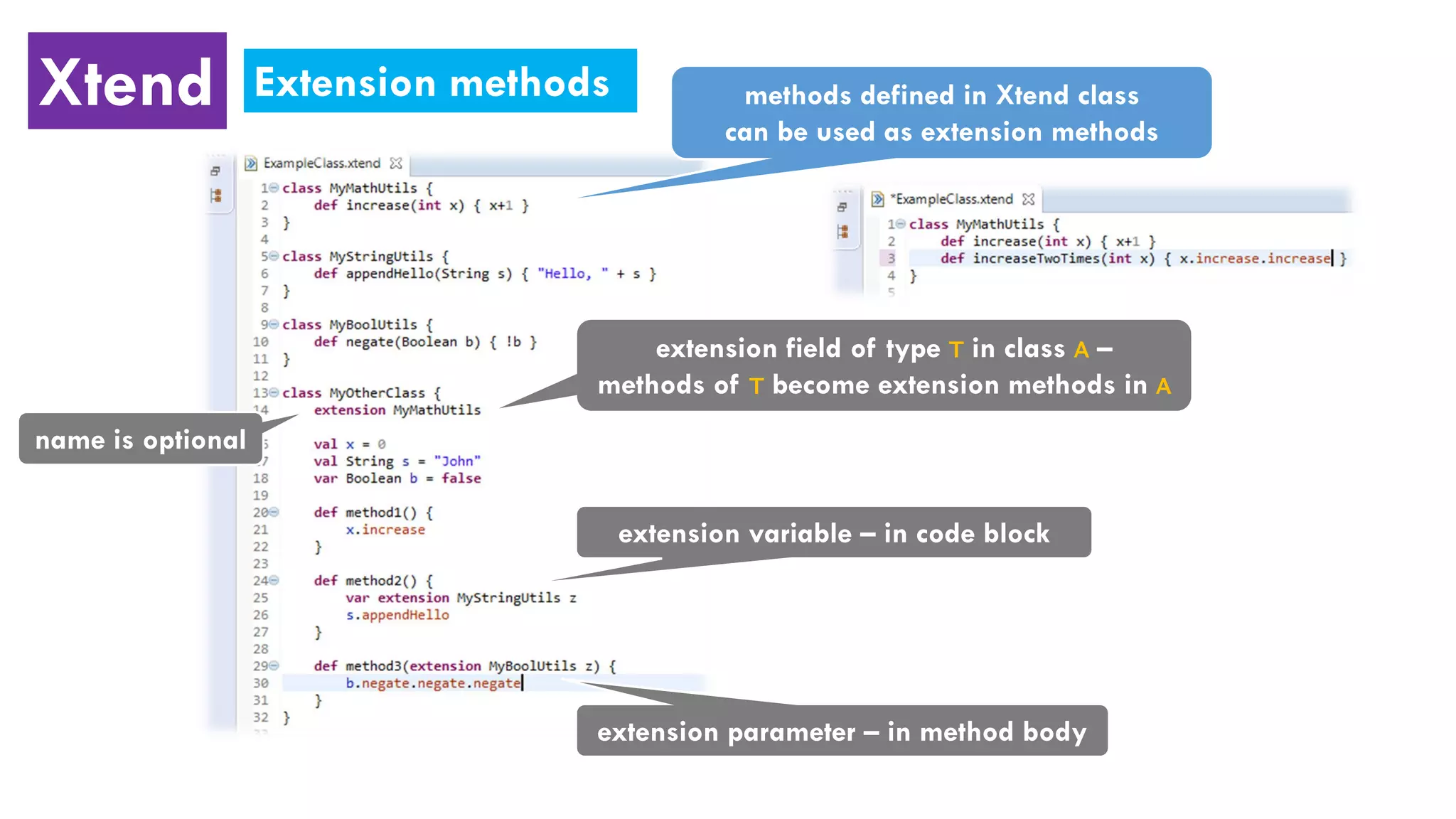
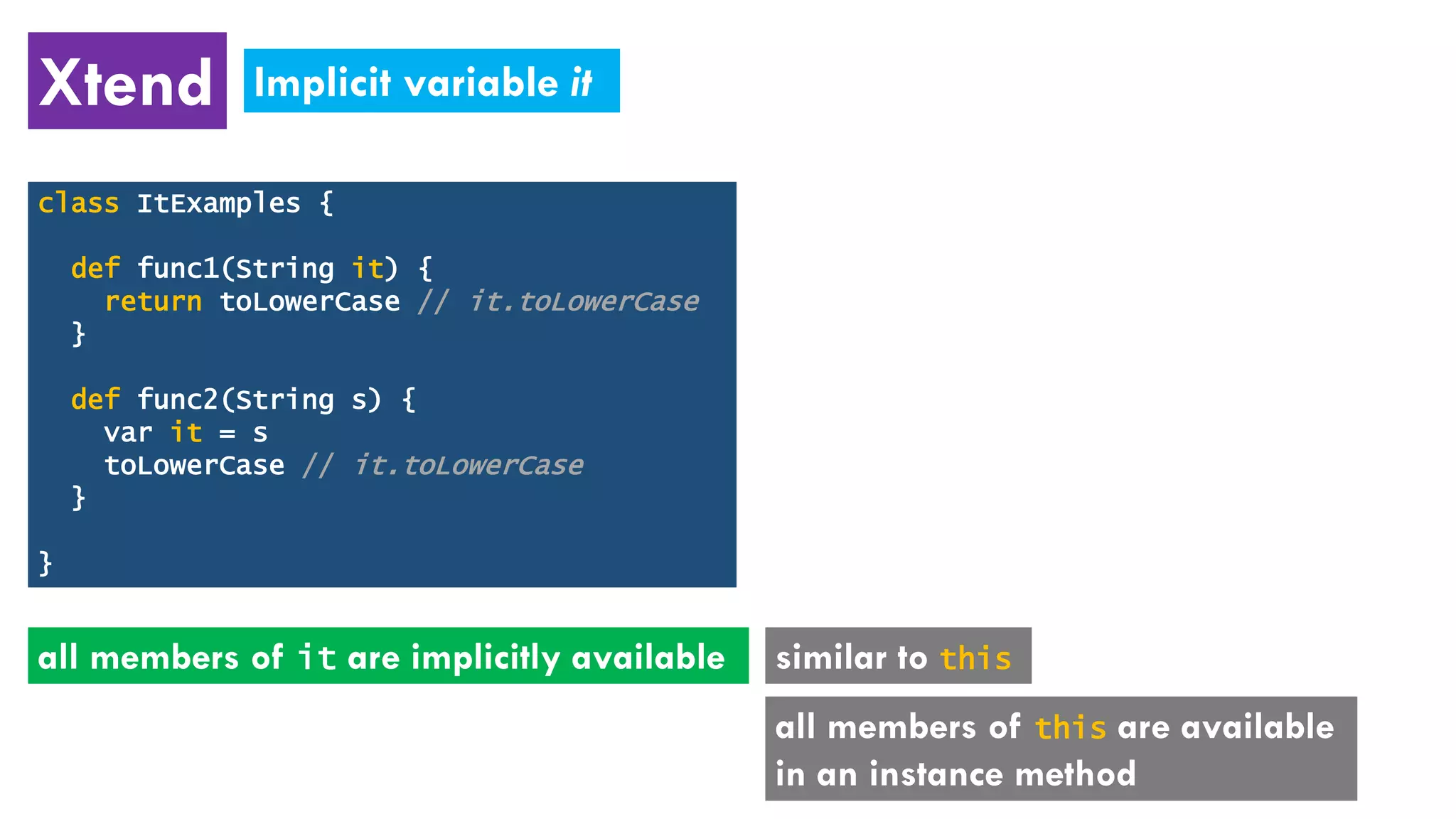
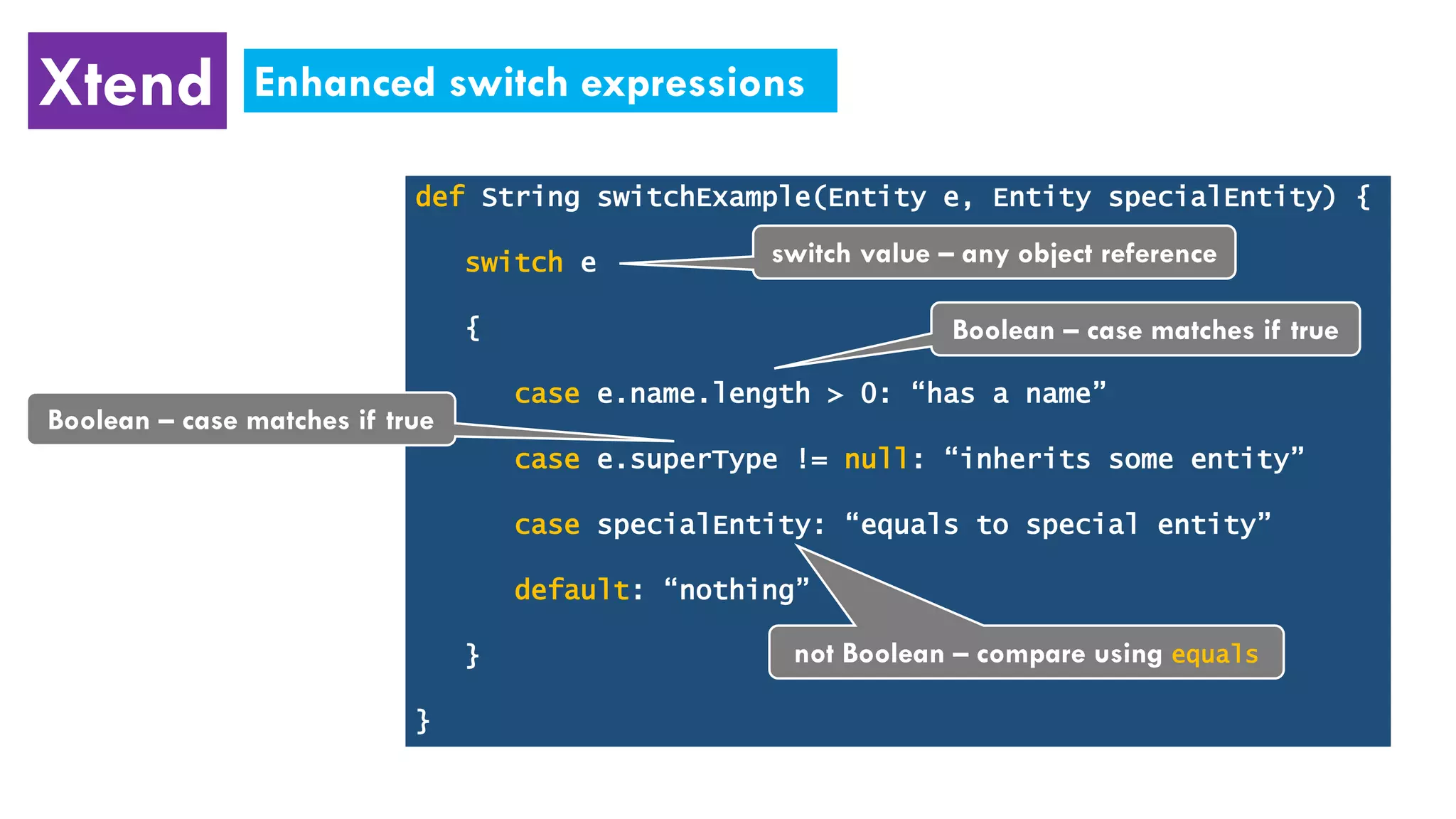
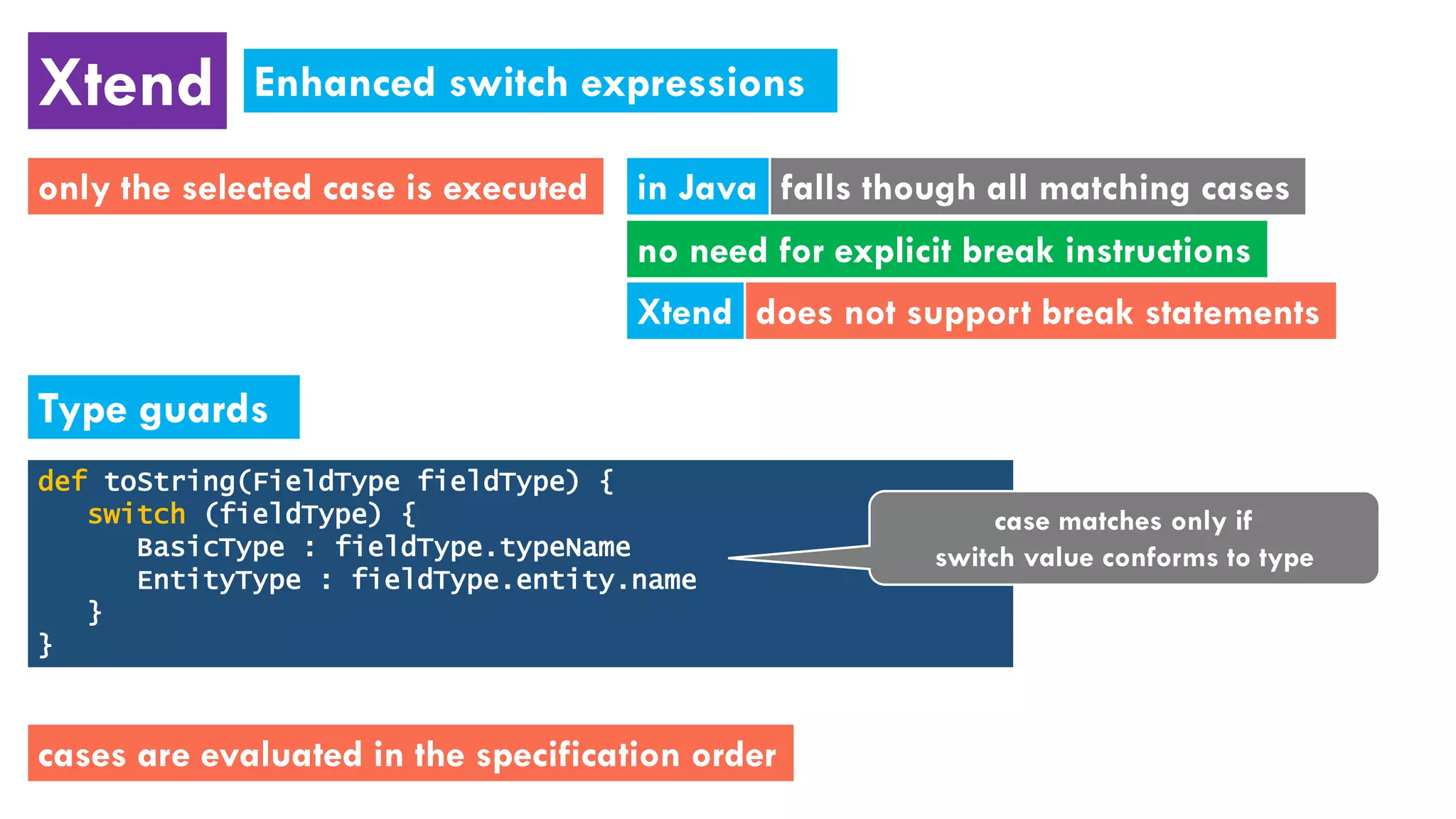
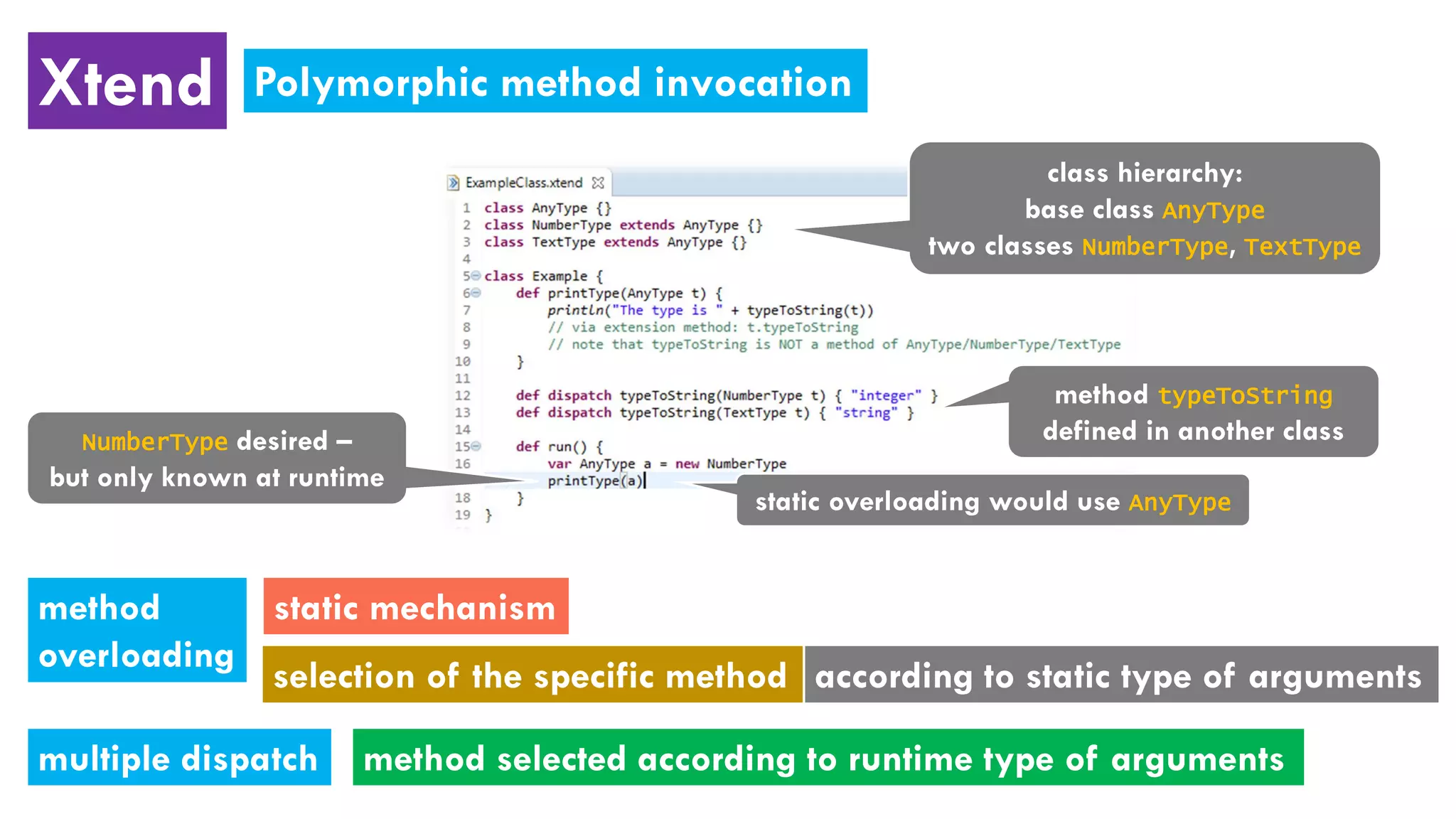
![Xtend Lambda expressions val l = [String s, int i | s + i] println(l.apply(“s”, 10)) val (String, int)=>String l = [String s, int i | s + i] val (String, int)=>String l = [s, i | s + i] def execute( (String, int)=>String f ) { f.apply(“s”, 10) } execute([s, i | s + i]) val list = newArrayList(“John”, “Mary”, “David”, “Alice”) Collections.sort(list, [arg0, arg1 | arg0.compareToIgnoreCase(arg1)]) Collections.sort(list) [arg0, arg1 | arg0.compareToIgnoreCase(arg1)] mystrings.findFirst[s | s.startsWith(“T”)] mystrings.findFirst[it.startsWith(“T”)] mystrings.findFirst[startsWith(“T”)] anonymous function can be stored in a variable can be passed to methods types for lambda expressions types can be omitted if can be inferred SAM (Single Abstract Method) known in Java as functional interfaces](https://image.slidesharecdn.com/9-xtext-xtend-180123200342/75/Xtend-Programming-Language-11-2048.jpg)
![Xtend With operator return eINSTANCE.createPerson => [ name = “John” surname = “Smith” ] val person = eINSTANCE.createPerson person.name = “John” person.surname = “Smith” return person binds an object to the scope of a lambda expression result of with operator is the object itself lambda expression with single parameter binary operator=> expressionleft operand right operand it can be omitted executes lambda with left-hand side as the argument result left operand after applying lambda](https://image.slidesharecdn.com/9-xtext-xtend-180123200342/75/Xtend-Programming-Language-12-2048.jpg)